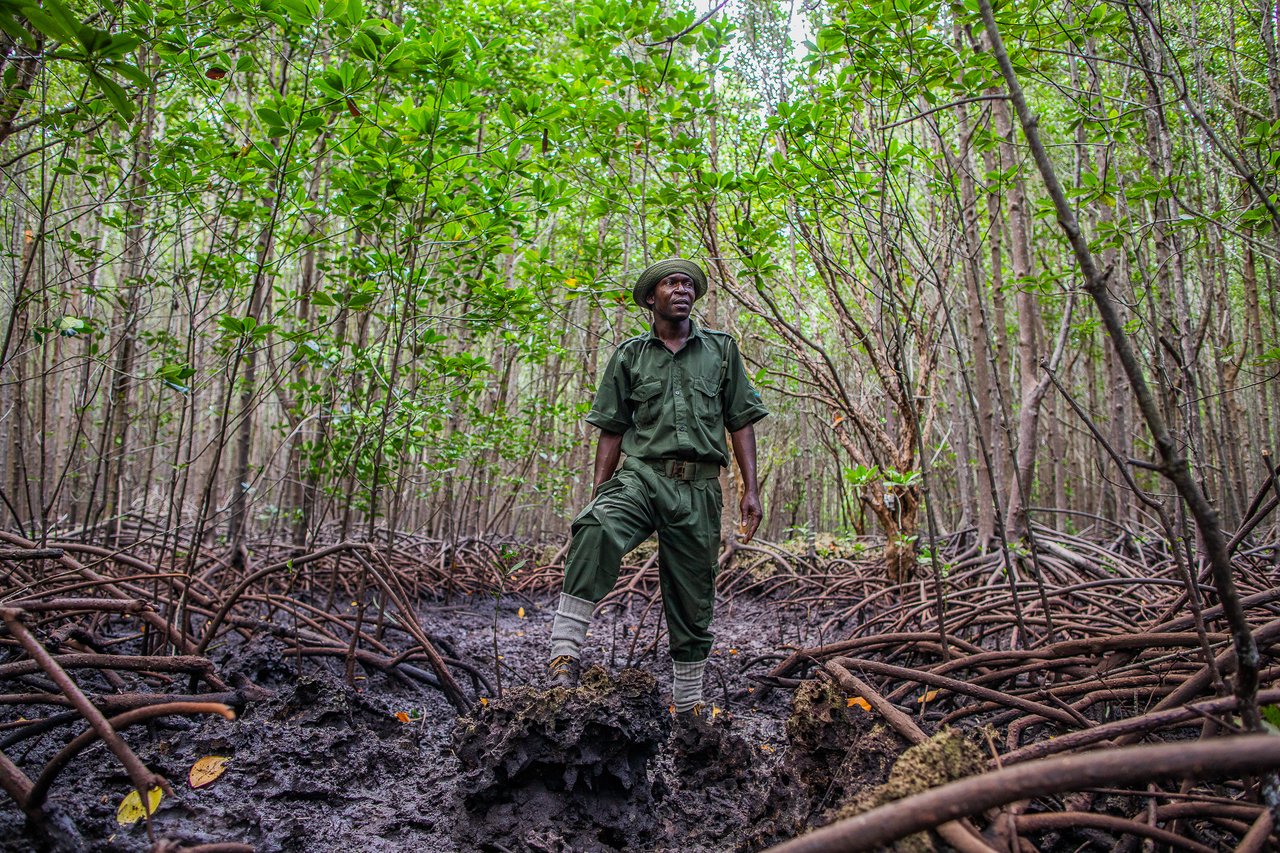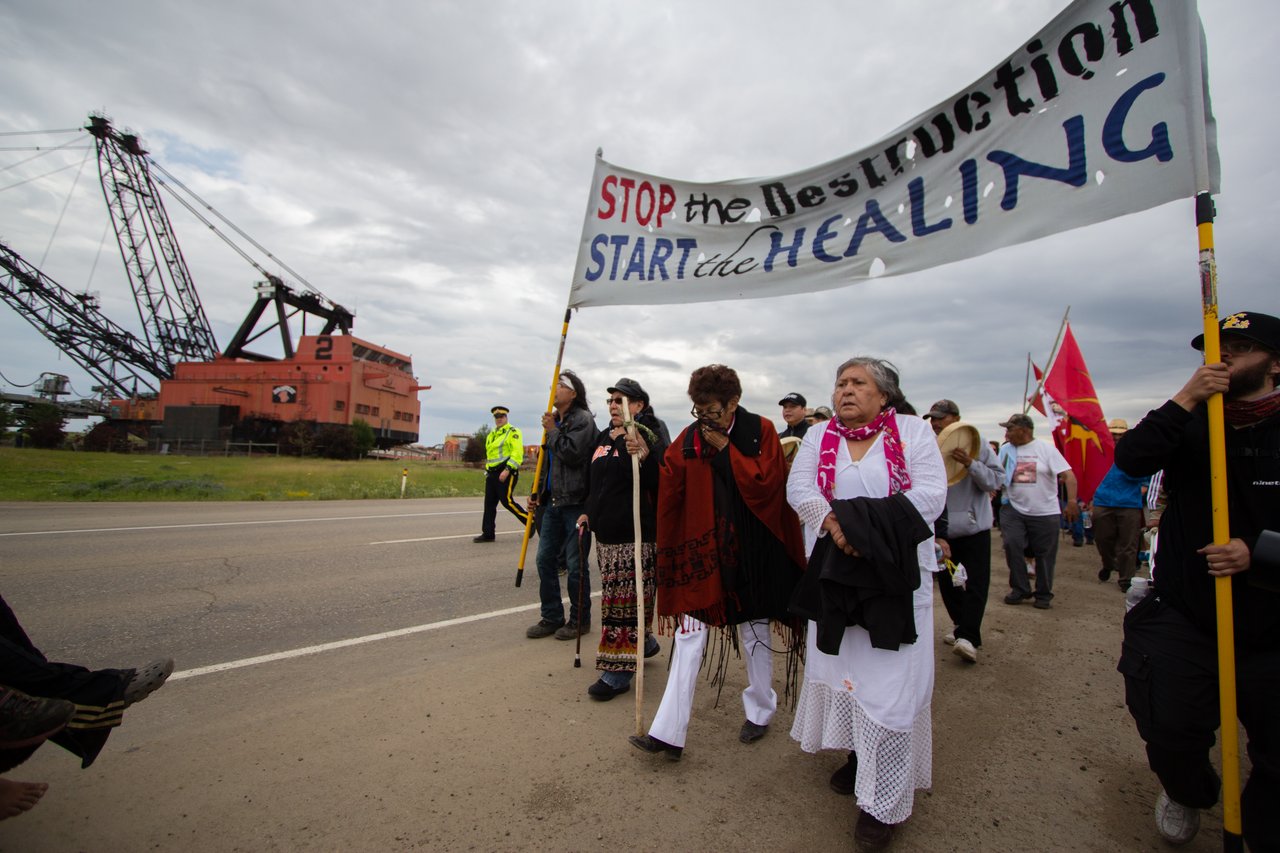Earth Jurisprudence, Wild Law, and the Global Movement for Rights of Nature
by Jess Tyrrell, Wild Law Institute, Cape Town
Amidst a profound global shift in legal paradigms, Earth Jurisprudence, Wild Law, and the Rights of Nature (RoN) movements emerge as transformative forces challenging traditional anthropocentric views. This movement, rooted in visionary ideas from figures like Christopher Stone, Thomas Berry, and Cormac Cullinan, advocates for a departure from perceiving nature as a mere resource, emphasising the grant of legal personhood to ecosystems and their diverse members.
Visionaries and Paradigm Departure
Christopher Stone
Christopher Stone's groundbreaking proposal in 1972 laid the foundation for the RoN movement, now encompassing the Universal Declaration of the Rights of Mother Earth, the Global Alliance for the RoN, and the United Nations Harmony with Nature program. Stone's vision sought to extend legal rights to elements of the natural environment, such as forests, oceans, and rivers. His proposal, outlined in the article "Should Trees Have Standing?: Toward Legal Rights for Natural Objects," envisioned legal representation for these natural objects, paralleling legal practices where guardians are appointed for individuals unable to manage their affairs. This visionary approach set the stage for the broader RoN movement, Earth Jurisprudence, and Wild Law, influencing the global recognition of nature as a legal subject with inherent rights.
Thomas Berry and Earth Jurisprudence
Thomas Berry's Earth Jurisprudence, which includes the recognition of RoN, adds another layer to this transformative shift. Berry argued that the primary task of this century is to transition from exploiting the planet to establishing a respectful human-Earth relationship that recognises the inherent value and rights of each member of the Earth community.
Berry envisioned the 'Great Work' as a conscious and radical transformation of our relationship with the living planet, liberating our hearts and minds from the dominant industrial mode of thinking. This shift entails moving away from perceiving diversity as a threat and embracing solidarity with the diverse elements of the Earth community.
Berry underscored the enduring Earth-centred perspective among Indigenous and traditional communities, emphasising the importance of integrating their ethics, customary laws, and governance systems derived from the laws of Mother Earth.
Cormac Cullinan and Wild Law
Coined by Cormac Cullinan, Wild Law offers a holistic approach to law and governance, weaving together ecological principles. Viewing all life as interconnected within an intricate web, it advocates for a profound reassessment of prevailing legal and governance systems rooted in Earth Jurisprudence. This shift is crucial to support Earth's integrity and health actively, diverging from the current paradigm that primarily treats nature as a resource for human benefit, attributing environmental crises to this mindset.
Wild Law urges a reevaluation of existing legal and governance philosophies, promoting a transition from an anthropocentric to an ecocentric perspective, recognising nature's inherent value beyond human utility. Although Wild Law and Earth Jurisprudence are often used interchangeably, Wild Law emphasises laws emerging from this holistic approach, whereas Earth Jurisprudence is the philosophy. A core principle both share is the assertion of legal personality for all elements of nature, granting tangible rights enforceable in court. Wild Law aims to distil these concepts into fundamental legal principles accepted by courts or embodied in statutes by encouraging local, participatory governance and drawing from neglected traditional norms.
Prioritising Earth's well-being in decision-making, Wild Law argues that without this paradigm shift, environmental law may manage existing problems without fundamentally resolving them.
Cormac Cullinan drafted the Universal Declaration of the Rights of Mother Earth and is a founder of the Global Alliance for the Rights of Nature.
Departure from Anthropocentrism and Inadequacies of Existing Legal Frameworks
The RoN movement represents a significant departure from anthropocentric perspectives ingrained in colonial legacies. Earth Jurisprudence and Wild Law challenge this narrative, recognising the intrinsic value of nature and advocating for legal personhood for ecosystems, rivers, mountains, and all beings contributing to ecological health.
The current socio-ecological crisis, marked by climate change, biodiversity loss, and environmental degradation, highlights the inadequacies of existing legal frameworks.
Traditional systems often prioritise short-term economic gains over long-term environmental sustainability. Earth Jurisprudence and Wild Law present alternatives emphasising the interconnectedness of human societies with the natural world, challenging colonial legacies that have prioritised exploitation over preservation.
RoN on the Global Stage
Countries worldwide are recognising the necessity of granting legal rights to nature. Ecuador, in 2008, became a trailblazer by entrenching nature's rights in its constitution, empowering its Constitutional Court to halt projects violating nature's rights. Wild Law principles resonate globally, influencing international agreements like the Kunming-Montreal Global Biodiversity Framework, signed by nearly 200 countries. The Eco-Jurisprudence Monitor has documented 468 RoN initiatives across 29 countries, signalling a shift towards recognising RoN. However, it is crucial to note that RoN, rooted in environmental laws, requires a more profound reconsideration of legal ontology to address neo-colonial practices and Western property relations.
Integrating Indigenous Wisdom in Earth Jurisprudence
Central to the RoN movement is recognising the wisdom embedded in indigenous knowledge. Indigenous peoples maintain sustainable relationships with their environments, viewing nature as a living entity with inherent value.
Earth Jurisprudence and Wild Law acknowledge the importance of integrating indigenous perspectives, valuing their traditional ecological knowledge, and incorporating their voices in shaping legal frameworks.
Various countries have embraced Earth Jurisprudence and Wild Law principles in their legal frameworks. These include recognising natural entities as legal entities, invoking indigenous wisdom in environmental decisions, and codifying customary laws to protect sacred natural sites.
- New Zealand - The Te Urewera Act (2014) recognises the Urewera Forest as "a legal entity" with rights, echoing the indigenous Maori belief that aspects of nature are living beings. This legislation draws from Maori wisdom, acknowledging the interconnectedness of humans and nature.
- Ecuador - The Constitution of 2008 acknowledges the RoN, and is deeply influenced by indigenous philosophies. The "Sumak Kawsay" or "Buen Vivir" concept emphasises living in harmony with nature, reflecting indigenous values prioritising ecosystems' well-being.
- United States - The Standing Rock Sioux Tribe's opposition to the Dakota Access Pipeline is rooted in indigenous knowledge. The tribe asserts that the pipeline threatens their water source and violates their sacred connection to the land, highlighting the integration of indigenous perspectives in environmental activism.
- Australia - Aboriginal fire management practices in Australia, rooted in traditional ecological knowledge, are gaining recognition for their effectiveness in preventing wildfires and preserving biodiversity. These practices showcase the relevance of indigenous wisdom in sustainable environmental management.
- Canada - The Delgamuukw case in Canada saw the Gitxsan Nation asserting their land rights based on their oral traditions and cultural practices. In this case, the legal recognition of indigenous oral history contributes to acknowledging indigenous wisdom in land rights disputes.
- India - Courts have invoked the "parent of the nation" doctrine to declare "Mother Nature" a living being with rights, showcasing a diverse global commitment to Earth jurisprudence and Wild Law.
- Benin - The Benin Sacred Forest Law (2012) legally recognised, sustainably manages and protects sacred forests and sites. This law, a product of civil society and community lobbying, sets a precedent for recognising Sacred Natural Sites in Africa.
- Uganda - Buliisa District Council Ordinance (2020) codifies the Bagungu People's customary laws and protects sacred natural sites within Bagungu ancestral territory. This legislation incorporates Earth Jurisprudence principles and indigenous knowledge to preserve ecosystems and uphold the RoN.
Acknowledging Intrinsic Value for a Healthy Future
The evolving landscape of Earth Jurisprudence, Wild Law, and the global RoN movement transcends existing environmental laws, advocating for a profound shift in legal paradigms. Recognising the intrinsic value of nature as a subject with rights is crucial for addressing the complexity of the socio-ecological crisis, requiring humans to acknowledge their place as part of a more extensive ecological system. This shift would inspire new governance and decision-making models, prioritising ecosystems' well-being over short-term profit and economic growth.
From recognising the legal personhood of nature to incorporating indigenous wisdom and challenging anthropocentric views, nations acknowledge the urgency of harmonising human activity with the natural world.
The transformative power of these movements lies in their ability to reshape legal systems, foster ecological awareness, and integrate diverse perspectives for the well-being of our planet and all its inhabitants.
RoN goes beyond existing environmental laws, requiring a fundamental reconsideration of human-nature relationships and paving the way for a more sustainable and interconnected future.
Jess Tyrrell serves as the Operations Officer at the Wild Law Institute. She is passionate about the interplay between societal well-being and environmental preservation. Committed to inclusivity, Jess actively supports community engagement programs, promoting environmental awareness and empowerment within marginalised South African communities.
Links & Literature
- Berry, Thomas (1999). The Great Work. New York: Harmony/Bell Tower, 1999.
- Stone, Christopher D. “Should Trees Have Standing?–Towards Legal Rights for Natural Objects.” Southern California Law Review 45. (1972): 450-501.
- McCullinan, Cormac (2011). Wild Law: A Manifesto for Earth Justice. Chelsea Green Publisher.
- Gaia Foundation: Film - Earth Jurisprudence Explained.
- Eco-Jurisprudence Monitor.
- Pachamama Alliance – Sumak Kawsay.
- „Ecuador First to Grant Nature Constitutional Rights“, Capitalism Nature Socialism. (2008), 19:4, 131-133.
- New Zealand: Te Urewara Act 2014.
- Cagle, Alison. “Standing Rock Tribe Wins in Court After Years of Perseverance.” Earth Justice, 25 March 2020.
- Benin: Sacred Forest Law 2012.
- Case: Delgamuukw v. British Columbia 1997.
- Dr Jamuna, S. “Parens patriae jurisdiction in biodiversity conservation.” The Times of India, 28 July 2022.
- Buliisa District Council Ordinance 2020.



